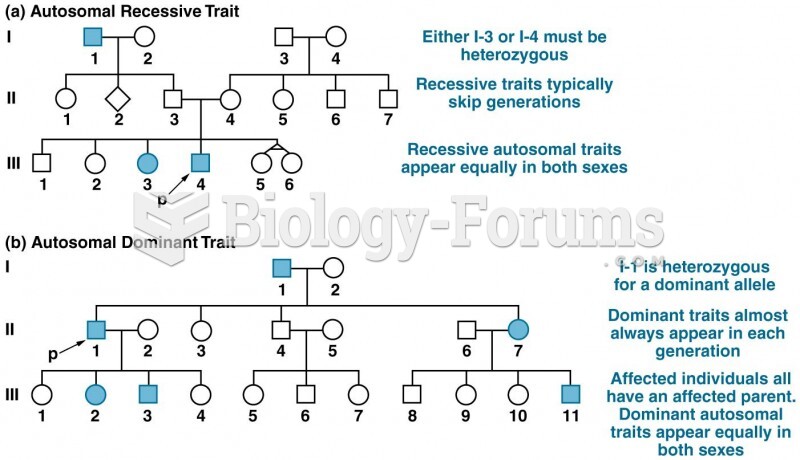This topic contains a solution. Click here to go to the answer
|
|
|
Did you know?
According to the CDC, approximately 31.7% of the U.S. population has high low-density lipoprotein (LDL) or "bad cholesterol" levels.
Did you know?
This year, an estimated 1.4 million Americans will have a new or recurrent heart attack.
Did you know?
Warfarin was developed as a consequence of the study of a strange bleeding disorder that suddenly occurred in cattle on the northern prairies of the United States in the early 1900s.
Did you know?
It is difficult to obtain enough calcium without consuming milk or other dairy foods.
Did you know?
Alzheimer's disease affects only about 10% of people older than 65 years of age. Most forms of decreased mental function and dementia are caused by disuse (letting the mind get lazy).
 Polyps and polyposis. A polyp is a protruding growth from a mucous membrane lining a hollow organ. I
Polyps and polyposis. A polyp is a protruding growth from a mucous membrane lining a hollow organ. I
 Long bones develop from several bony centers--one for the shaft and at least one for each end. The e
Long bones develop from several bony centers--one for the shaft and at least one for each end. The e





